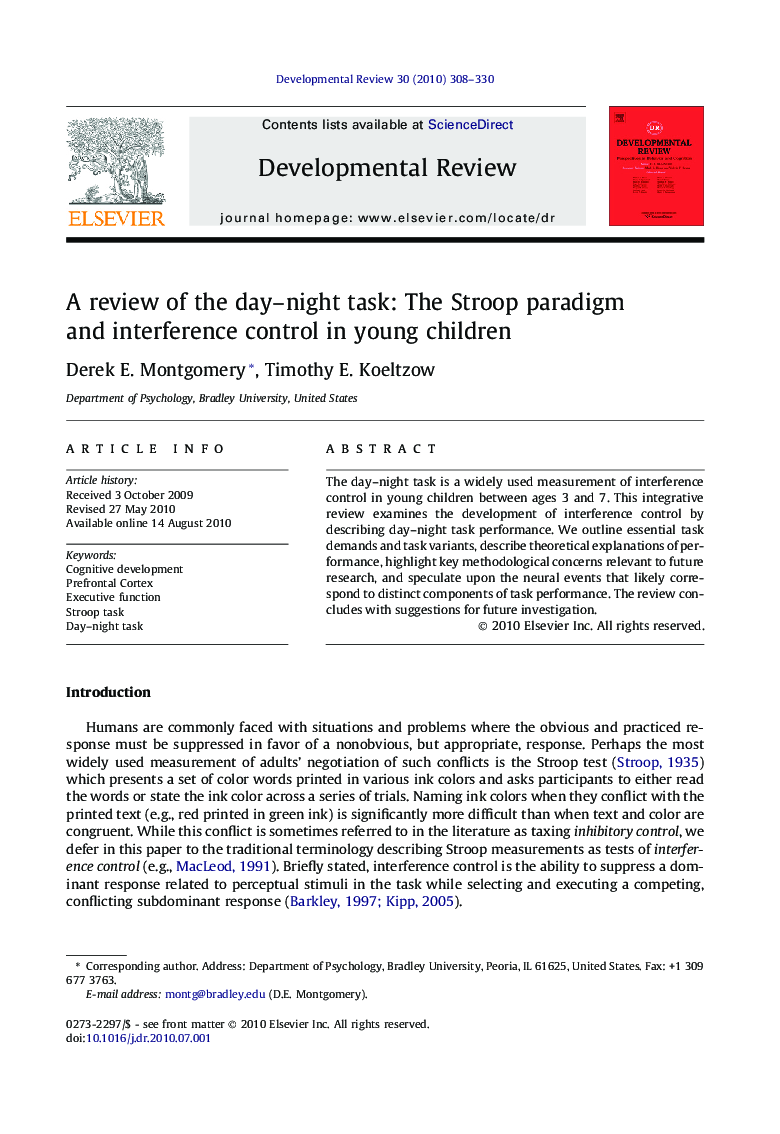| Article ID | Journal | Published Year | Pages | File Type |
|---|---|---|---|---|
| 353577 | Developmental Review | 2010 | 23 Pages |
The day–night task is a widely used measurement of interference control in young children between ages 3 and 7. This integrative review examines the development of interference control by describing day–night task performance. We outline essential task demands and task variants, describe theoretical explanations of performance, highlight key methodological concerns relevant to future research, and speculate upon the neural events that likely correspond to distinct components of task performance. The review concludes with suggestions for future investigation.
Research highlights► This review describes the standard, paradigmatic measurement of interference control in young children. ► The qualities of children‘s performance on the paradigmatic measurement are then summarized. ► The theorized processes that appear central to successful performance are discussed.
